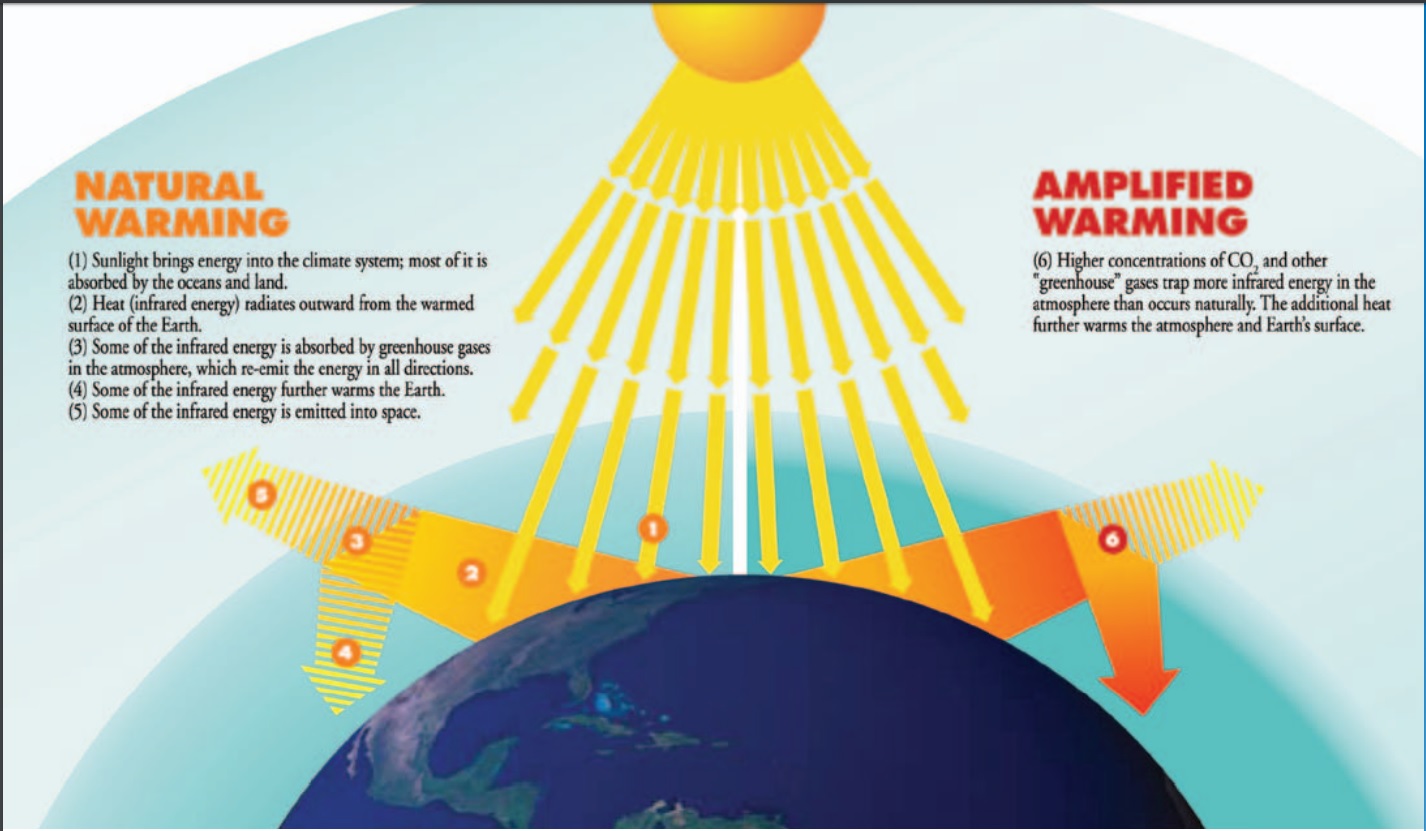Understanding Greenhouse Gases and Their Impact

Our planet is enveloped by a delicate atmospheric blanket, and certain gases within this layer play a crucial role in regulating Earth’s temperature. These are known as greenhouse gases, and their impact on our climate is a topic of increasing global concern.
What exactly are greenhouse gases? Essentially, they are gaseous components of the atmosphere that absorb and emit infrared radiation. This process traps heat within the Earth’s system, much like the glass panels of a greenhouse, hence the name. While this natural greenhouse effect is essential for maintaining a habitable temperature on Earth, an excessive concentration of these gases leads to a warming planet and climate change.
The primary greenhouse gases include carbon dioxide (CO2), methane (CH4), nitrous oxide (N2O), ozone (O3), and fluorinated gases. These gases arise from various sources, both natural and human-induced. Natural processes such as volcanic eruptions and decomposition contribute to greenhouse gas levels. However, human activities, particularly the burning of fossil fuels for energy, deforestation, and industrial processes, have significantly amplified their concentration in the atmosphere.
The implications of this increase in greenhouse gases are far-reaching. A warmer planet leads to rising sea levels due to melting glaciers and thermal expansion of water, more frequent and intense extreme weather events like hurricanes and droughts, disruptions to ecosystems and biodiversity, and potential impacts on human health and agriculture.
Understanding the history and importance of greenhouse gases is key to addressing the climate crisis. The scientific understanding of the greenhouse effect dates back to the 19th century, with scientists like Joseph Fourier and Svante Arrhenius recognizing the role of certain gases in trapping heat. Over time, research has solidified the link between human activities and increasing greenhouse gas concentrations, leading to the urgent need for action.
While a certain amount of greenhouse gases is necessary for life on Earth, the excessive amounts currently present are causing significant harm. Reducing our reliance on fossil fuels, promoting renewable energy sources, improving energy efficiency, and adopting sustainable land management practices are crucial steps towards mitigating climate change.
One crucial benefit of naturally occurring greenhouse gases is maintaining a habitable temperature on Earth. Without them, the average temperature would be significantly colder, making life as we know it impossible. Secondly, they contribute to the water cycle, influencing rainfall patterns and water availability. Finally, they play a role in plant growth through photosynthesis, where CO2 is absorbed by plants.
Advantages and Disadvantages of the Greenhouse Effect
| Advantages | Disadvantages |
|---|---|
| Maintains habitable temperature | Global warming and climate change |
| Supports the water cycle | Sea level rise |
| Facilitates plant growth | Extreme weather events |
Frequently Asked Questions about Greenhouse Gases:
1. What is the most prevalent greenhouse gas? Carbon dioxide (CO2).
2. What are the main sources of human-caused greenhouse gases? Burning fossil fuels, deforestation, and industrial processes.
3. How do greenhouse gases cause global warming? They trap heat in the atmosphere.
4. What are the effects of climate change? Rising sea levels, extreme weather, ecosystem disruptions.
5. How can we reduce greenhouse gas emissions? Transition to renewable energy, improve energy efficiency, adopt sustainable practices.
6. What is the role of methane as a greenhouse gas? It is a potent greenhouse gas with a higher warming potential than CO2, though it has a shorter lifespan in the atmosphere.
7. What are fluorinated gases? These are synthetic, powerful greenhouse gases used in various industrial applications.
8. How does deforestation contribute to climate change? Trees absorb CO2, so deforestation reduces the planet's ability to absorb this greenhouse gas.
Tips for Reducing Your Carbon Footprint:
Reduce energy consumption at home, choose sustainable transportation options, adopt a plant-based diet, reduce waste, and support sustainable businesses.
In conclusion, understanding the role and impact of greenhouse gases is paramount for addressing the global challenge of climate change. These gases, while essential for maintaining a habitable planet, have reached excessive levels due to human activities. The consequences are evident in rising temperatures, extreme weather events, and disruptions to ecosystems. By transitioning to cleaner energy sources, embracing sustainable practices, and promoting global cooperation, we can mitigate the effects of climate change and create a more sustainable future for generations to come. The time for action is now, and every individual has a role to play in safeguarding our planet. By making conscious choices in our daily lives and advocating for policy changes, we can collectively contribute to a healthier and more resilient world.
Shah alam section 9 house hunting your ultimate guide
Unlocking potential exploring the yibo zhu columbia university connection
Seal the deal mastering the art of contract award letters













